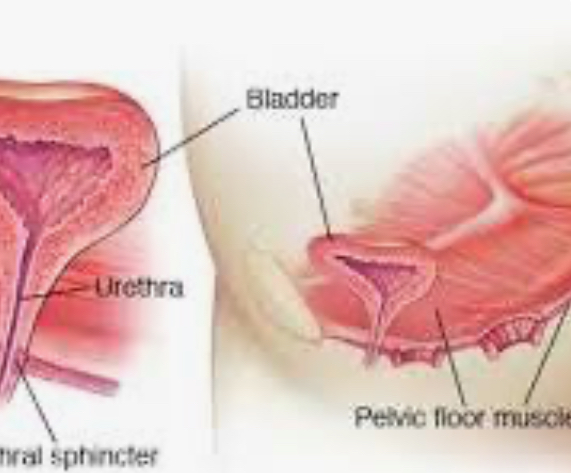
As women navigate through the journey of menopause, they encounter a variety of changes in their bodies. One important aspect that often gets overlooked is pelvic floor health. The pelvic floor plays a crucial role in supporting our organs and controlling bladder and bowel functions. Think of the pelvic floor as a hammock or a sling of muscles that sits at the bottom of your pelvis. It’s like a supportive net that holds up your bladder, uterus, and bowel. These muscles stretch from the pubic bone at the front to the tailbone at the back and from one sitting bone to the other.
Just like any other muscle in our body, the pelvic floor needs to be strong and flexible to do its job properly. A healthy pelvic floor helps with bladder and bowel control, supports your pelvic organs, and contributes to sexual function.
As women go through menopause, hormonal changes and aging can weaken these muscles, leading to issues like urinary incontinence, pelvic organ prolapse, and sexual dysfunction.
Urinary Incontinence: This is when you accidentally leak urine, whether it’s a few drops when you laugh, cough, or sneeze (stress incontinence), or a sudden urge to urinate that you can’t control (urge incontinence)
Pelvic Organ Prolapse: This occurs when the pelvic organs, such as the bladder, uterus, or rectum, bulge into the vagina due to weakened pelvic floor muscles.
Sexual Dysfunction: Changes in hormone levels during menopause can lead to vaginal dryness, pain during intercourse, and decreased libido, affecting sexual function and satisfaction.
Maintaining Pelvic Floor Health: There are simple steps menopausal women can take to maintain and improve pelvic floor health:
Pelvic Floor Exercises (Kegels): These exercises involve squeezing and lifting the muscles of the pelvic floor as if you’re trying to stop the flow of urine. Doing Kegels regularly can strengthen the pelvic floor muscles and improve bladder control.
Healthy Lifestyle Choices: Eating a balanced diet, staying hydrated, maintaining a healthy weight, and avoiding smoking can all contribute to pelvic floor health.
Avoiding Heavy Lifting: Straining from heavy lifting can put extra pressure on the pelvic floor muscles, leading to weakness and dysfunction. When lifting, remember to engage your pelvic floor muscles and use proper lifting techniques.
Seeking Professional Help: If you’re experiencing pelvic floor issues, don’t hesitate to consult a healthcare provider or a pelvic floor physical therapist. They can provide personalized advice and treatment options to address your specific concerns.
Taking care of your pelvic floor health is essential for overall well-being, especially during menopause. By understanding the importance of pelvic floor muscles and adopting simple lifestyle changes and exercises, menopausal women can maintain strong pelvic floor muscles and minimize the risk of pelvic floor problems. Remember, it’s never too late to start prioritizing your pelvic health and enjoying a more comfortable and fulfilling menopausal journey.
#pelvic floor #pelvic floor health #menopause symptoms #menopausematter #menopause education #menopause help #menopause empowerment